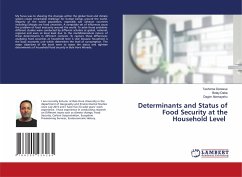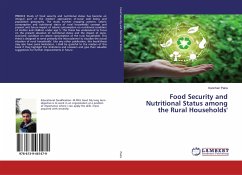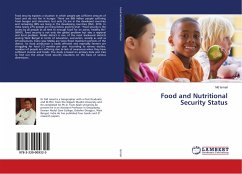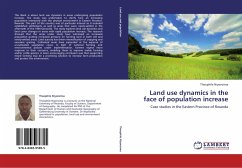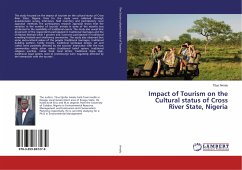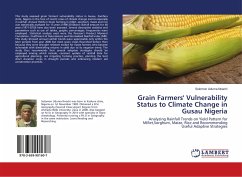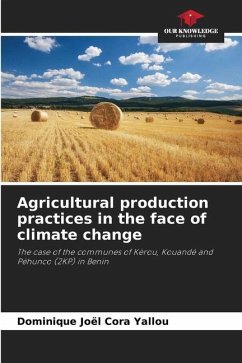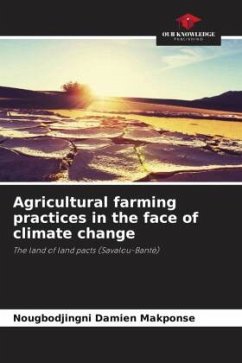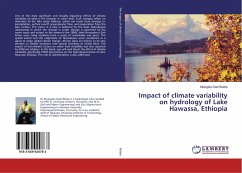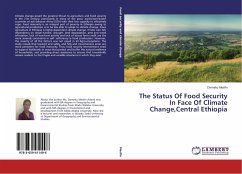
The Status Of Food Security In Face Of Climate Change,Central Ethiopia
Versandkostenfrei!
Versandfertig in 6-10 Tagen
41,99 €
inkl. MwSt.

PAYBACK Punkte
21 °P sammeln!
Climate change posed the greatest threat to agriculture and food security in the 21st century, particularly in many of the poor, agriculture-based countries of sub-Saharan Africa (SSA) with their low capacity to effectively cope. Food insecurity is an integral part of poverty in Ethiopia owing to agricultural production is to be less able to adapt to climate change. Since agriculture in Ethiopia is highly dependent climate change. Erratic rain fall, dependency on single harvest, drought, land degradation, pest and weed infestation, lack of non-farm activity and lack of access farm credit are t...
Climate change posed the greatest threat to agriculture and food security in the 21st century, particularly in many of the poor, agriculture-based countries of sub-Saharan Africa (SSA) with their low capacity to effectively cope. Food insecurity is an integral part of poverty in Ethiopia owing to agricultural production is to be less able to adapt to climate change. Since agriculture in Ethiopia is highly dependent climate change. Erratic rain fall, dependency on single harvest, drought, land degradation, pest and weed infestation, lack of non-farm activity and lack of access farm credit are the more severely constraints in self- sufficiency in food production. However, the severity of all the factors was not equal in all Agro-ecosystems. The study reveals that lowland and valley, and hilly and mountainous areas are more persistent for food insecurity. Thus, food security interventions need to support livelihoods in ways that protect and buffer the natural resilience of households, and providing direct assistance to ensure that households remain resilient to the fragile and variable situations in which they exist.



